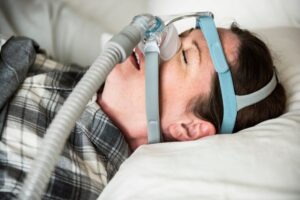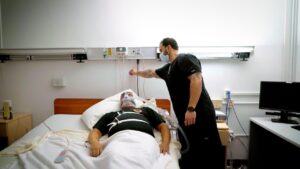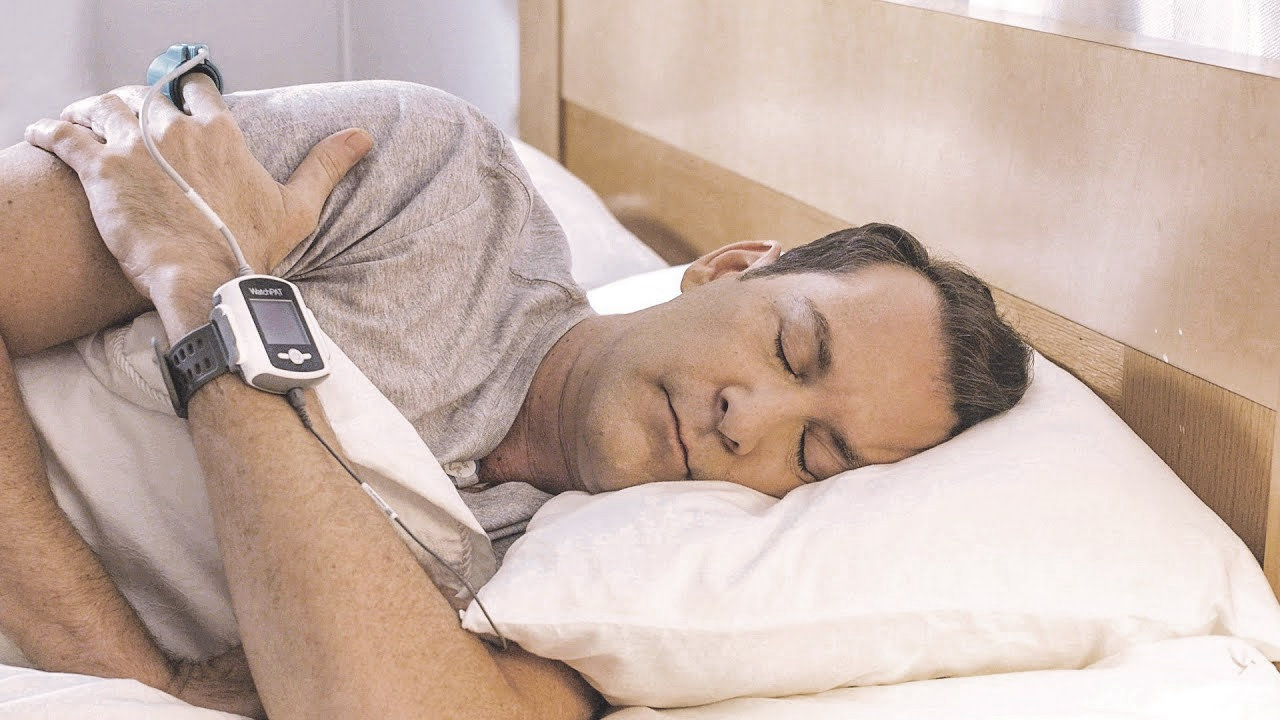
Sleep apnea is a common yet potentially serious sleep disorder that affects millions of people worldwide. It is characterized by repeated pauses in breathing or shallow breaths during sleep. These pauses can last for a few seconds to minutes and occur multiple times throughout the night, disrupting the normal sleep pattern. To accurately diagnose sleep apnea and determine its severity, a sleep study is often necessary.
What is Sleep Apnea?
Sleep apnea is a condition that affects the way a person breathes while they are asleep. It can have a significant impact on a person’s overall health and well-being. There are three main types of sleep apnea: obstructive sleep apnea, central sleep apnea, and complex sleep apnea syndrome.
During a sleep study, the patient arrives at the sleep center in the evening and goes through the setup process. Electrodes are attached to the scalp, face, chest, and legs to record brain activity, eye movements, muscle activity, heart rate, and other vital signs. A belt is also placed around the chest and abdomen to monitor breathing effort.
Obstructive sleep apnea (OSA) is the most common type and occurs when the throat muscles relax, causing the airway to narrow or close completely. This can lead to pauses in breathing, often accompanied by loud snoring and gasping for air. These pauses can happen multiple times throughout the night, disrupting the normal sleep cycle and preventing the person from getting restful sleep.
Central sleep apnea (CSA) is less common and results from the brain not sending proper signals to the muscles that control breathing. Unlike OSA, CSA is not typically associated with snoring. Instead, it is characterized by periods of shallow or paused breathing during sleep. This can also lead to fragmented sleep and daytime sleepiness.
Complex sleep apnea syndrome is a combination of both OSA and CSA. It is a more complex condition that requires specialized treatment and management.
Symptoms and Signs of Sleep Apnea
Recognizing the symptoms and signs of sleep apnea is crucial for early detection and treatment. Some common symptoms include loud snoring, gasping or choking during sleep, excessive daytime sleepiness, morning headaches, irritability, difficulty concentrating, and waking up frequently during the night. However, it is important to note that not everyone with sleep apnea experiences these symptoms.
Some individuals may only exhibit subtle signs, such as morning fatigue or a general feeling of unrefreshed sleep. This makes a sleep study necessary for an accurate diagnosis. A sleep study, also known as a polysomnogram, is a comprehensive evaluation that monitors various physiological parameters during sleep, including brain activity, eye movements, heart rate, and breathing patterns. It provides valuable information to healthcare professionals to determine the presence and severity of sleep apnea.
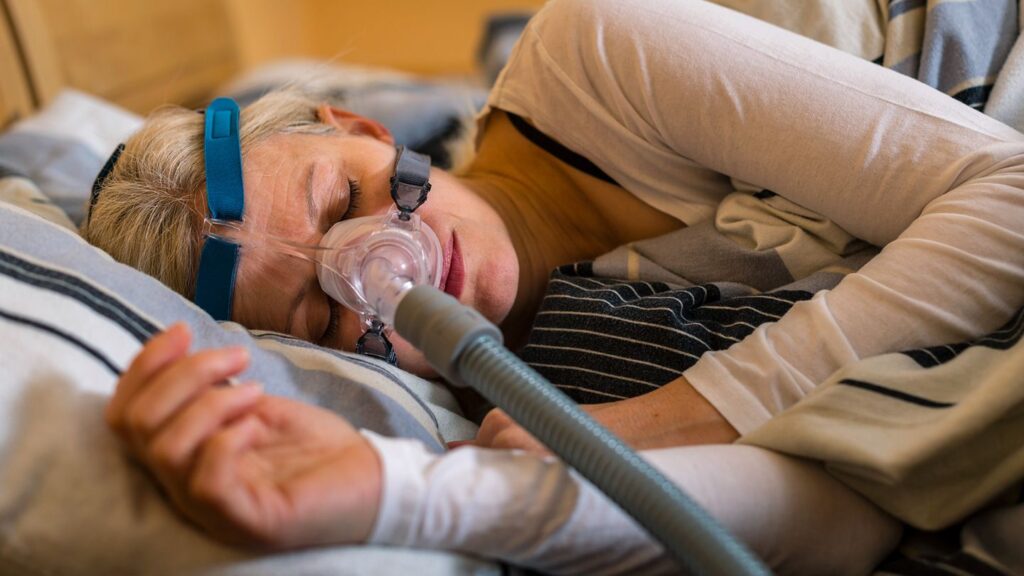
Risk Factors for Sleep Apnea
While sleep apnea can affect anyone, certain factors can increase the risk of developing the condition. Being overweight or obese is a significant risk factor, as excess weight can contribute to the narrowing of the airway. Additionally, individuals with a thick neck circumference are more prone to experiencing sleep apnea symptoms.
Genetics also play a role, as having a family history of sleep apnea can increase the likelihood of developing the condition. Age and gender are also factors, with sleep apnea being more prevalent in older individuals and men. Structural abnormalities, such as a deviated septum or nasal congestion, can contribute to airway obstruction during sleep.
Furthermore, lifestyle choices can impact sleep apnea risk. Smoking can irritate the airways and increase inflammation, making them more prone to collapse during sleep. Alcohol and sedatives can relax the throat muscles, further exacerbating the condition. Read more about inflammation at https://www.ncbi.nlm.nih.gov/books/NBK279298/
Understanding these risk factors can help individuals identify their susceptibility to sleep apnea and take proactive measures to address their sleep health. Seeking medical advice and undergoing a sleep study can provide valuable insights and guide appropriate treatment options.
The Role of Sleep Studies in Diagnosis
Sleep studies, also known as polysomnography, are essential for diagnosing sleep apnea. They provide valuable information about a person’s sleep patterns, breathing, and brain activity during sleep. A sleep study typically involves spending a night in a sleep center or using a portable sleep monitoring device at home. It involves the placement of sensors on various parts of the body to monitor breathing, heart rate, oxygen levels, brain waves, and movements.
The Process of a Sleep Study
Once the setup is complete, the patient is allowed to sleep while the equipment records and analyzes their sleep data. The sleep technologist monitors the study remotely and ensures the accuracy of the collected information. In the morning, the patient’s sleep study results are reviewed and interpreted by a sleep specialist, who then makes a diagnosis based on the findings.
Interpreting Sleep Study Results
The sleep study results provide valuable insights into the presence and severity of sleep apnea. The Apnea-Hypopnea Index (AHI) is used to quantify the number of apnea and hypopnea events per hour of sleep. It helps determine whether a person has mild, moderate, or severe sleep apnea. Other factors assessed include oxygen levels, sleep efficiency, and the presence of other sleep disorders.
Based on the sleep study results, the sleep specialist can recommend appropriate treatment options and interventions tailored to the individual’s specific needs. This personalized approach ensures that patients receive the most effective treatment plan for managing their sleep apnea.
Furthermore, sleep studies can also provide valuable information about other sleep disorders that may be impacting a person’s overall sleep quality and health. For example, the study can reveal if a person is experiencing restless leg syndrome, periodic limb movement disorder, or narcolepsy. These additional insights allow healthcare professionals to develop comprehensive treatment plans that address all aspects of a patient’s sleep-related issues.
Moreover, sleep studies can also shed light on the impact of sleep apnea on a person’s overall health. Sleep apnea has been linked to various health conditions, including high blood pressure, heart disease, stroke, and diabetes. By understanding the severity of sleep apnea through sleep studies, healthcare providers can better assess a patient’s risk for these associated health problems and take appropriate preventive measures. Click here to learn more about diabetes.
Benefits of Early Diagnosis and Treatment
Early diagnosis and treatment of sleep apnea offer numerous benefits that can significantly improve the quality of life and overall health of affected individuals. With proper treatment, individuals experience improved sleep quality, reduced daytime sleepiness, increased energy levels, and enhanced cognitive function.
Improving Quality of Life with Treatment
Sleep apnea treatment, such as continuous positive airway pressure (CPAP) therapy, helps alleviate symptoms and restore normal breathing patterns during sleep. By ensuring adequate oxygenation and uninterrupted sleep, individuals can wake up feeling refreshed and rejuvenated.
Additionally, addressing sleep apnea reduces the risk of developing comorbidities such as high blood pressure, heart disease, stroke, type 2 diabetes, and depression, which are commonly associated with untreated sleep apnea. By improving overall health and well-being, early diagnosis and treatment of sleep apnea can significantly enhance quality of life.
Preventing Long-Term Health Risks
Left untreated, sleep apnea can have severe consequences on long-term health. The repeated oxygen deprivation and disrupted sleep patterns can increase the risk of cardiovascular problems, including hypertension, arrhythmias, and heart failure. Sleep apnea has also been linked to metabolic disorders, cognitive impairment, and an increased risk of accidents and workplace injuries due to daytime sleepiness.
By diagnosing and treating sleep apnea early on, individuals can reduce the likelihood of developing these adverse health outcomes and maintain better overall health for years to come. It is crucial to recognize the importance of sleep apnea diagnosis and the subsequent initiation of appropriate treatment to minimize potential risks.
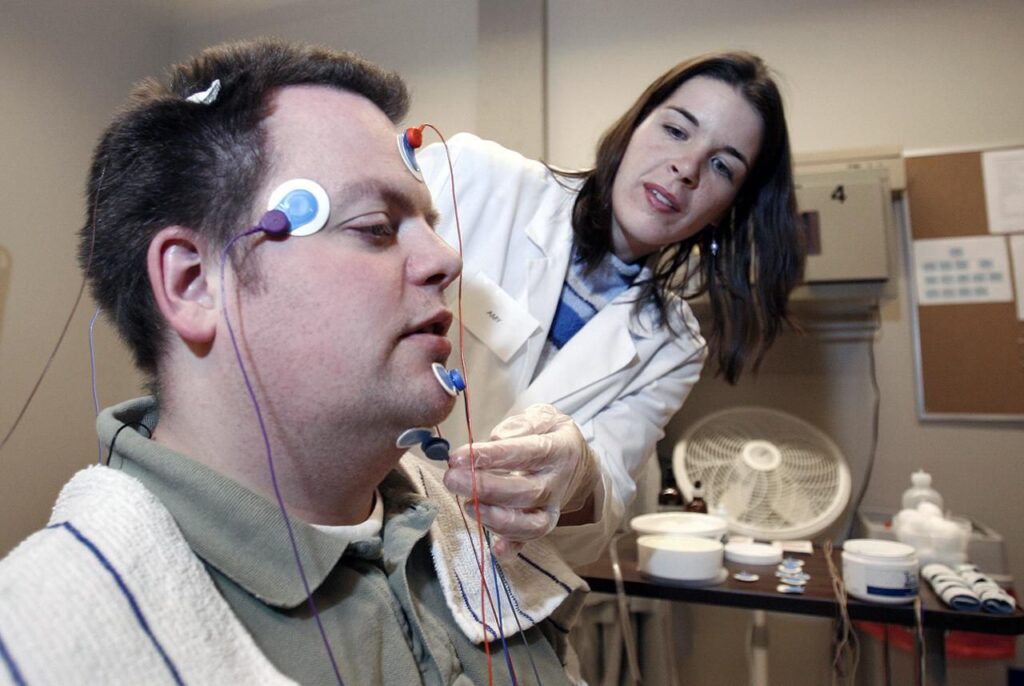
Common Misconceptions about Sleep Apnea and Sleep Studies
Despite the prevalence of sleep apnea, there are several misconceptions surrounding the condition and the role of sleep studies in diagnosis. Debunking these myths is crucial for increasing awareness and promoting accurate information.
Debunking Sleep Apnea Myths
- Myth: Only overweight or older adults develop sleep apnea.In reality, sleep apnea can affect individuals of all ages and body types. While certain risk factors contribute to its development, anyone can be susceptible to sleep apnea.
- Myth: Snoring is harmless and unrelated to sleep apnea.Snoring can be a symptom of sleep apnea, especially if accompanied by other signs such as gasping, choking, or pauses in breathing during sleep.
- Myth: Sleep apnea only affects sleep quality.Aside from the impact on sleep quality, sleep apnea can have serious consequences on overall health, including cardiovascular and metabolic health.
Addressing Fears about Sleep Studies
Some individuals may be hesitant about undergoing a sleep study due to various fears or concerns. It is important to address these apprehensions and provide reassurance about the nature and process of sleep studies.
- Fear: Discomfort or pain during the sleep study.Sleep studies are non-invasive, painless procedures. The sensors and electrodes used during the study are applied with minimal discomfort, allowing individuals to sleep naturally.
- Fear: Feeling claustrophobic or confined during the sleep study.Modern sleep study setups provide a comfortable environment, and individuals can move freely within reasonable limits. Sleep centers strive to create a relaxed and home-like ambiance to ensure patient comfort.
- Fear: Inconvenience of spending a night in a sleep center.While spending a night away from home may feel inconvenient, sleep studies are crucial for accurate diagnosis and subsequent treatment. The information gained from a sleep study is invaluable for addressing sleep apnea and improving overall health.
The Future of Sleep Apnea Diagnosis
Advancements in technology and personalized medicine are revolutionizing sleep apnea diagnosis and treatment. These innovations offer hope for improved accuracy, increased accessibility, and enhanced patient experience.
Read about sleep testing: Comprehensive Guide to Sleep Testing
Advances in Sleep Study Technology
Newer sleep monitoring devices are becoming more user-friendly and portable, allowing individuals to undergo sleep studies in the comfort of their homes. These home sleep tests provide an alternative to traditional in-lab studies, making diagnosis more accessible and convenient.
Furthermore, advancements in wearable technology and sleep tracking apps provide individuals with tools to monitor their sleep patterns and identify irregularities that may indicate the need for further evaluation.
The Role of Personalized Medicine in Sleep Apnea Treatment
Personalized medicine involves tailoring treatment plans based on an individual’s unique genetic makeup, lifestyle, preferences, and other factors. In the context of sleep apnea, personalized medicine allows for a more targeted and effective approach to treatment.
With advancements in genetic research and biomarker identification, sleep specialists can better understand the underlying mechanisms of sleep apnea and develop personalized interventions to address specific physiological variations. This individualized approach maximizes treatment outcomes and improves patient satisfaction.
In conclusion, understanding the importance of a sleep study for diagnosing sleep apnea is crucial for identifying and managing this common sleep disorder. Sleep studies play a vital role in accurate diagnosis, treatment planning, and long-term management. By debunking common myths, addressing fears, and embracing advancements in technology and personalized medicine, we can ensure more effective diagnosis and treatment strategies for individuals with sleep apnea.

